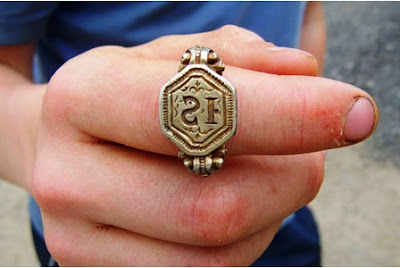
"It had lain undiscovered for around 3,000 years.
But now a ring dating back to the Bronze Age has been uncovered by a Winchester metal detector enthusiast, an inquest heard.
Alan Cracknell was on the verge of giving up his search for the day when he came across the rare find.
In his 30 years doing the weekend hobby, Mr Cracknell had found items like buttons and buckles from the Georgian period to the medieval period, but nothing like this."
Read more HERE.

























